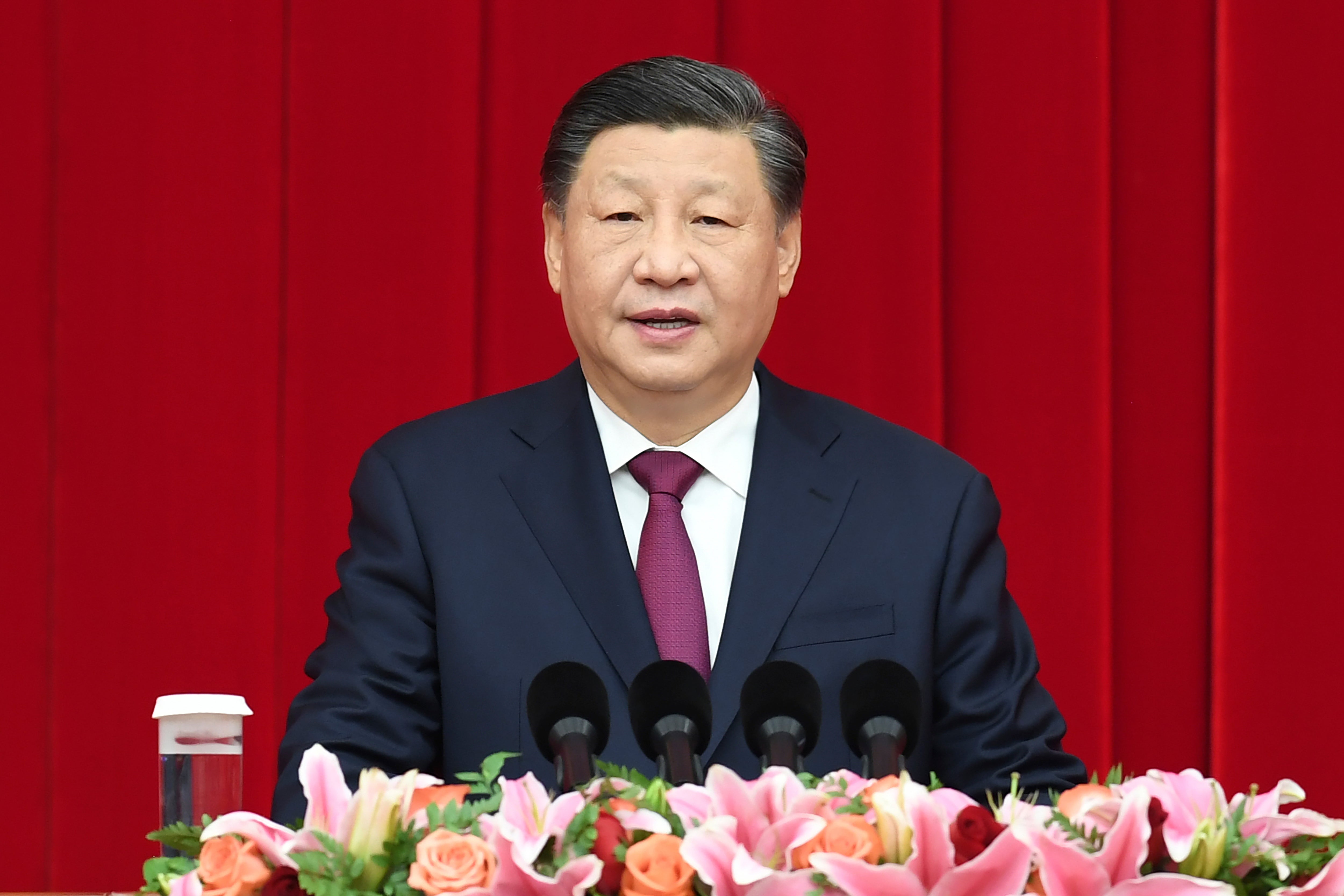China’s Xi Jinping urges unity as country enters ‘new phase’ in battling Covid-19
President says Beijing ‘unswervingly stands on the right side of history’

Your support helps us to tell the story
From reproductive rights to climate change to Big Tech, The Independent is on the ground when the story is developing. Whether it's investigating the financials of Elon Musk's pro-Trump PAC or producing our latest documentary, 'The A Word', which shines a light on the American women fighting for reproductive rights, we know how important it is to parse out the facts from the messaging.
At such a critical moment in US history, we need reporters on the ground. Your donation allows us to keep sending journalists to speak to both sides of the story.
The Independent is trusted by Americans across the entire political spectrum. And unlike many other quality news outlets, we choose not to lock Americans out of our reporting and analysis with paywalls. We believe quality journalism should be available to everyone, paid for by those who can afford it.
Your support makes all the difference.China’s president Xi Jinping has called for more effort and unity as the country enters a “new phase” in its approach to combating Covid-19, in his first comments to the public since his government changed course three weeks ago and relaxed its rigorous policy of lockdowns and mass testing.
China’s abrupt switch earlier this month from the “zero Covid” policy that it had maintained for nearly three years has led to infections sweeping across the country unchecked. It has also caused a further drop in economic activity and international concern, with Britain and France becoming the latest countries to impose curbs on travellers from China.
The switch by China followed unprecedented protests over the policy championed by Mr Xi, marking the strongest show of public defiance in his decade-old presidency and coinciding with grim growth figures for the country’s economy.
In a televised speech to mark the New Year, Mr Xi said China had overcome unprecedented difficulties and challenges in the battle against Covid, and that its policies were “optimised” when the situation and time so required.
“Since the outbreak of the epidemic... the majority of cadres and masses, especially medical personnel, grassroots workers braved hardships and courageously persevered,” Mr Xi said.
“At present, the epidemic prevention and control is entering a new phase, it is still a time of struggle, everyone is persevering and working hard, and the dawn is ahead. Let’s work harder, persistence means victory, and unity means victory.”
Mr Xi later turned to the challenges facing the world’s most populous country and second-largest economy, saying: “the world is not at peace.”
China will “always steadfastly advocate for peace and development... and unswervingly stands on the right side of history”, he said.
New Year’s Eve prompted reflection online and by residents of Wuhan, the epicentre of the Covid outbreak nearly three years ago, about the zero Covid policy and the impact of its reversal. People in the central city of Wuhan expressed hope that normal life would return in 2023 despite a surge in cases since pandemic curbs were lifted.
Wuhan resident Chen Mei, 45, said she hoped her teenage daughter would see no further disruptions to her schooling. “When she can’t go to the school and can only have classes online it’s definitely not an effective way of learning,” she said.
Thousands of users on China’s Twitter-like Weibo criticised the removal of a video made by local outlet NetEase News that collated real-life stories from 2022 that had captivated the Chinese public.
Many of the stories included in the video, which by Saturday could not be seen or shared on domestic social media platforms, highlighted the difficulties ordinary Chinese faced as a result of the previously strict Covid policy.
Weibo and NetEase did not immediately reply to a request for comment.
One Weibo hashtag about the video garnered almost 4 million hits before it disappeared from platforms at about noon on Saturday. Social media users created new hashtags to keep the comments pouring in.
“What a perverse world, you can only sing the praises of the fake but you cannot show real life,” one user wrote, attaching a screenshot of a blank page that is displayed when searching for the hashtags.
The disappearance of the videos and hashtags, seen by many as an act of censorship, suggests the Chinese government still sees the narrative surrounding its handling of the disease as a politically sensitive issue.
The wave of new infections has overwhelmed hospitals and funeral homes across the country, with lines of hearses outside crematoriums fuelling public concern. China, a country of 1.4 billion people, reported one new Covid death for Friday, the same as the day before – numbers that do not match the experience of other countries after they reopened. UK-based health data firm Airfinity said on Thursday that about 9,000 people in China were potentially dying each day from Covid.
Zhang Wenhong, director of the National Centre for Infectious Diseases (NCID), told the People’s Daily in an interview published on Saturday that Shanghai had reached a peak of infections on 22 December, saying there were currently about 10 million cases. He said those numbers indicated that some 50,000 people in the city of 25 million would need to be hospitalized in the next few weeks.
At the central hospital of Wuhan patient numbers were down on Saturday compared with the rush of the past few weeks, a worker outside the hospital’s fever clinic told Reuters. “This wave is almost over,” said the worker, who was wearing a hazmat suit.
A pharmacist whose shop is next to the hospital said most people in the city had now been infected and recovered. “It is mainly old people who are getting sick with it now,” he said.
Reuters



Join our commenting forum
Join thought-provoking conversations, follow other Independent readers and see their replies
Comments